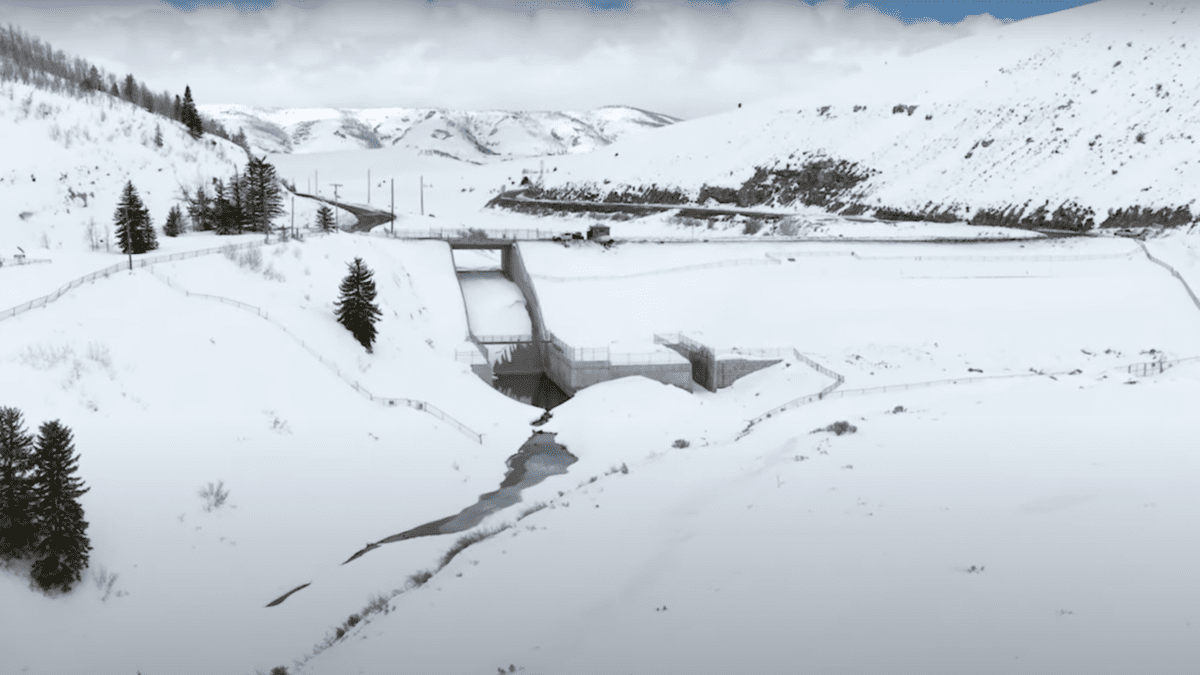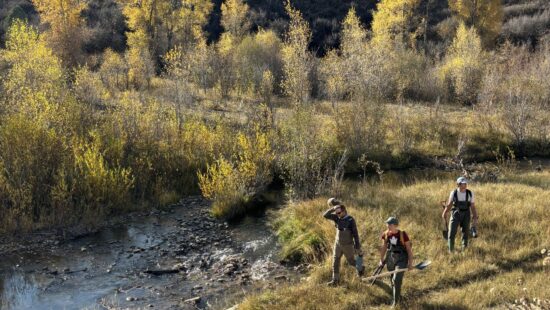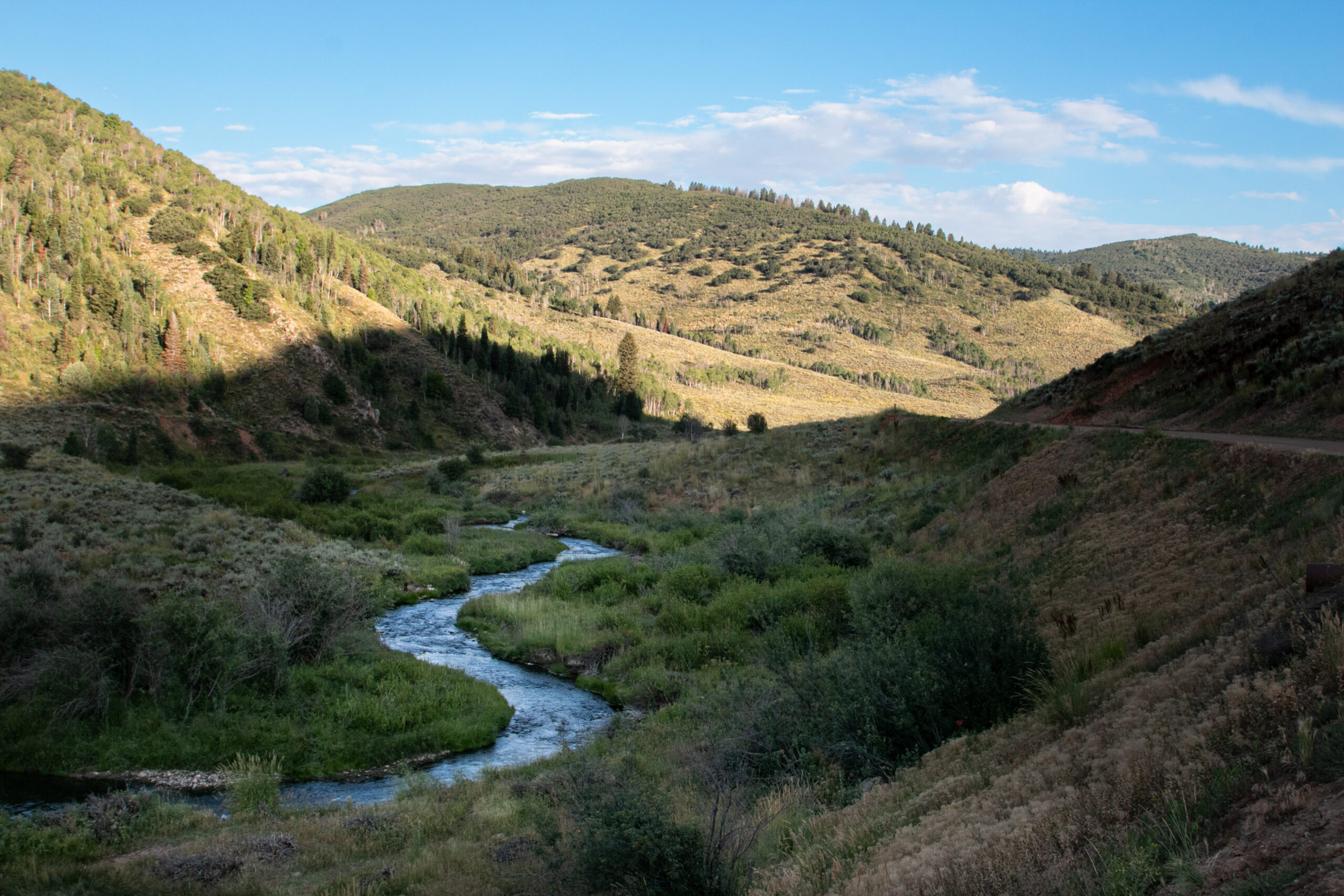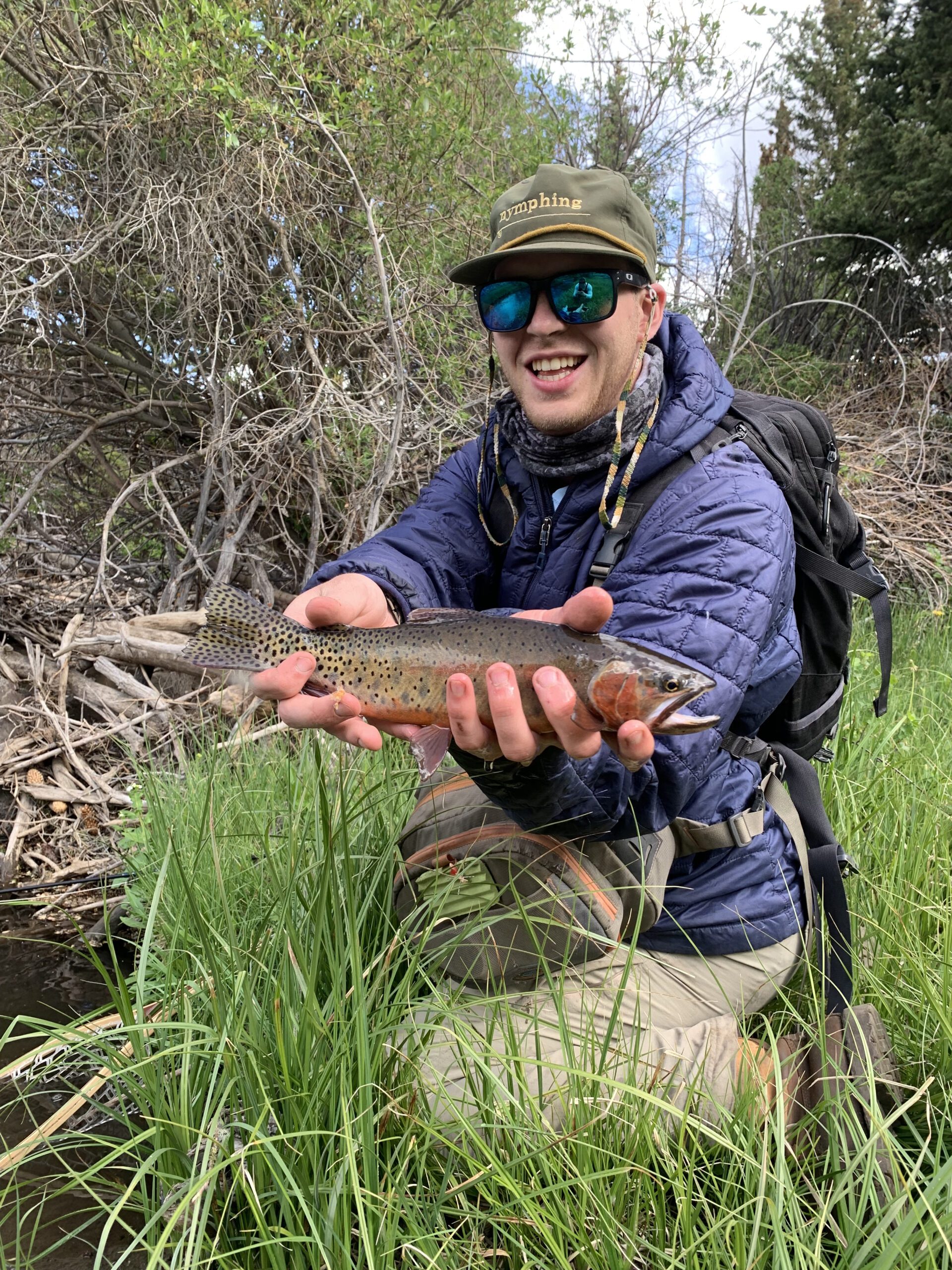Wildlife
Restoring a Blue Ribbon Fishery: Trout Unlimited drills hole in Scofield Dam

The Scofield Dam. Photo: Trout Unlimited
CARBON COUNTY, Utah – In March 2023, Trout Unlimited collaborated with various state and county entities to effectively drill a new hole in the Scofield Dam, aiming to contribute to the restoration of a previous Blue Ribbon Fishery situated directly below the dam.
Trout Unlimited, which was founded in Michigan in 1959 and introduced in Utah in 1995, has a long history of implementing and advocating for water conservancy programs and initiatives throughout the country.
Initiated in 2015, this project originated with the decommissioning of a coal power plant in Carbon County. This led to the restoration of water rights on the Price River to the Carbon Canal Company.
While the power plant was active, both the Carbon Canal Company and the power plant refrained from diverting water from the Scofield Reservoir during the winter to maintain an adequate water level in the reservoir for the power plant, which was no longer necessary following it’s decommissioning in 2015.
When the power plant stopped operations, the Carbon Canal Company and the Bureau of Land Reclamation reached an agreement which stated that the Carbon Canal Company maintained year-round water rights on a set amount of water in the Price River, including during the winter time.
As the power plant was now out of operation, the Carbon Canal Company wanted to utilize their water rights in the winter time to benefit the watershed, which is where Trout Unlimited and Jordan Nielson came in.
Nielson, who is Trout Unlimited’s Executive Director in the state of Utah, began coordinating with various stakeholders to draft a plan to safely divert water from the Scofield Reservoir to Lower Fish Creek, the former Blue Ribbon Fishery located downstream of the dam.
Nielson recognized that the fishery had been damaged by the lack of water flow in the winter time, which could be solved by Carbon Canal Company’s newly acquired water rights.
“Some of the water rights that the Canal Company owned were being reverted back to the power company- which were winter water rights, and the canal companies couldn’t divert them anymore,” Nielson said in an interview with TownLift. “I had built a good enough partnership with them that that they came to me and said, ‘we have this water we want to put it to use, do you think you can use it?”
In collaboration with the Utah Division of Wildlife Resources, the Intel Corporation, and the Bonneville Environmental Foundation, Nielson began working on leasing Carbon Canal Company’s water rights for 10 years.
“We’re paying the Canal Company to lease the water rights, and we’re offering to some corporations, like Intel, the opportunity to offset the water that they use somewhere else downstream in their production so they end up being net zero in water use,” Nielson said.
In 2020, Nielson commenced the leasing of water rights, promptly discovering that the recently obtained rights did not amount to sufficient water to fully activate the dam gates.
“When we started leasing the water, what I found out -which I didn’t know before we did the lease- was that to get our water through Schofield dam, which is only three and a half CFS, which doesn’t seem like very much, but it’s enough to keep a fishery alive during the winter. But what I found out is that that little amount of water causes damage to the dam if you open the gate just small enough to let our water through. There’s too much pressure and it will ruin the gate of the dam,” Nielson explained.
Nielson and Trout Unlimited lacked sufficient water rights to completely open the dam, prompting them to devise an alternative solution to avoid opening the dam gates entirely.
“I hired an engineer to put together some options to present to the Bureau of Reclamation, and we did some preliminary design work on pumping water over the dam, siphoning it over the spillway, or drilling a hole in the dam and putting in a new gate, and I actually paid for their engineers to evaluate those options,” Nielson said.
After deliberation with the Bureau of Reclamation, drilling a hole in the dam and installing a new gate was decided upon as the most feasible option. Nielson and his team then began working on drilling a hole into the air shaft of the dam.
“Inside the dam, it made more sense to drill a hole through into the air shaft and just drop the water out because it’s not that much water, and we could do it that way without damaging the main gates of the dam,” Nielson explained. “So we went to work doing that last winter, and we drilled a nine inch bore through two feet of concrete into the air shaft and then slid a steel pipe into it, grounded it off and put a gate on.”
“So now when water is short, and they have to close the dam completely during the winter to store water, we can crack that open and call for our water rights without doing any damage.”
Nielson and Trout Unlimited are now hoping the increased water flow in the winter time will help restore and protect the fisheries located beneath the dam which inhabits several species of trout.
“We wanted to protect the whole fishery. The Lower Fish Creek, which is what comes out of the Schofield dam, then runs down and makes the Price River,” Nielson said. “It used to be a blue ribbon fishery, and it grows really nice brown trout and we also have some Colorado cutthroat in there. It’s a tailwater so you know fish do really well in it if you can keep it flowing.”
In addition to saving and protecting trout populations in Utah, Nielson and Trout Unlimited are hoping to deliver more water downstream.
“The bigger picture with running water down the river, is we’re in a really long term drought. Lake Powell is about 32% full. Last year this time it was about 20% full, and so with the politics of delivering water on the river, that means that we’ve got to find some solutions to get some water in our reservoirs,” Nielson said.
Trout Unlimited recently released a short Youtube documentary detailing the process of drilling the hole in the dam, which can be found on their Youtube page.


















